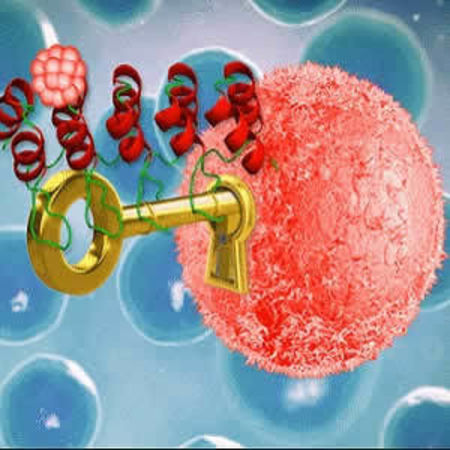Scientists from Tomsk Polytechnic University, Tomsk Research Institute of Oncology and the Institute of Biorganic Chemistry of the Russian Academy of Sciences have developed a radiopharmaceutical for advanced identification of cancer. Labelled as the technetium-99 isotope, the medication is ready for pre-clinical phase trial.
The radiopharmaceutical has a complex structure with a protein scaffold DARPin attached with chelate complex. This binds the protein to the radioactive technetium-99 isotope.
TPU scientists explain that the chelate complexes are essential as there is a certain lock on the cancerous cell in the form of receptors and the protein in this medication is the key. The chelate complexes help label this key among numerous other keys.
The isotope of technetium is tightened with the help of gamma cameras which makes it possible for it to accurately determine the size of the tumour and its location. It can be extremely useful in the diagnosis of small-cell cancers when cancer cells are scattered over the entire organ that has been affected.
The technology was patented by the TPU researchers in 2017. The technology is more cost-effective as compared to the existing ones and the use of iodine is more effective. The researchers are confident that this drug can be used for both diagnosis and treatment of cancer diseases in future. More detailed studies however must be performed before this happens.
Source: Tomsk Polytechnic University
Image Credit: RIA Novosti (Russian news agency)
Latest Articles
cancer diagnosis, Radiopharmaceutical, technetium-99 isotope, chelate complex
Scientists from Tomsk Polytechnic University, Tomsk Research Institute of Oncology and the Institute of Biorganic Chemistry of the Russian Academy of Sciences have developed a radiopharmaceutical for advanced identification of cancer.

























